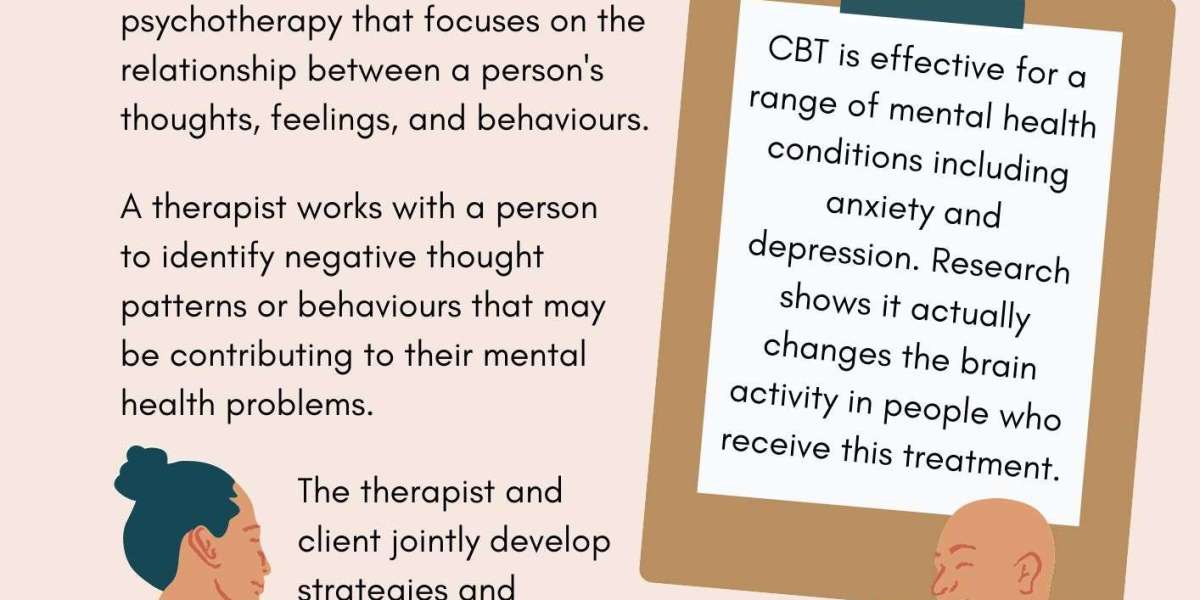Cognitive Behavioral Therapy (CBT) is a widely recognized and effective form of psychotherapy that focuses on the relationship between thoughts, feelings, and behaviours. Originating in the 1960s, CBT has evolved into one of the most researched and practised therapies for various mental health conditions. This article provides an in-depth exploration of CBT, from its basic principles to its practical applications and future directions.
Theoretical Basis of CBT
CBT is grounded in two main theoretical approaches: cognitive theory and behavioural theory. Cognitive theory suggests that our thoughts and beliefs shape our feelings and behaviours. Meanwhile, behavioural theory focuses on how our actions and reactions are learned through experiences and environmental factors. CBT integrates these two perspectives to address both cognitive and behavioural aspects of psychological problems.
Key Concepts in CBT
Central to CBT are concepts such as automatic thoughts, which are rapid and often unconscious interpretations of events, cognitive distortions, which are irrational or exaggerated ways of thinking, and behavioural experiments, which involve testing and challenging beliefs through real-life experiences.
Applications of CBT
CBT has been successfully applied to various mental health conditions, including anxiety disorders, depression, phobias, post-traumatic stress disorder (PTSD), obsessive-compulsive disorder (OCD), and substance abuse. Its effectiveness in treating these conditions has been supported by numerous research studies.
Process of CBT
The process of CBT typically begins with an assessment to understand the client's issues and formulate a treatment plan. Goals are set collaboratively between the therapist and the client, and sessions often involve teaching specific techniques to address negative thought patterns and maladaptive behaviours. Homework assignments are commonly given to reinforce learning and practice new skills outside of therapy sessions.
Effectiveness of CBT
Research has consistently shown CBT to be highly effective in treating various psychological disorders. In many cases, it has been found to be as effective as or even more effective than other forms of therapy or medication alone. Its structured and goal-oriented nature makes it particularly suitable for short-term interventions.
Benefits of CBT
One of the key benefits of CBT therapy is its focus on empowering individuals to take an active role in their therapy. By learning practical skills to manage their symptoms, clients often experience long-lasting improvements in their mental well-being. Additionally, CBT can be adapted to suit the needs of different individuals and can be delivered in various formats, including individual therapy, group therapy, or self-help resources.
Limitations of CBT
While CBT has been widely praised for its effectiveness, it is not without its limitations. It may not be suitable for everyone, particularly those with severe mental health issues or cognitive impairments. Additionally, CBT can be time-consuming and requires a significant commitment from the client to engage in the therapeutic process actively.
CBT in Different Populations
CBT techniques can be adapted to different age groups and cultural backgrounds. It has been successfully used with children and adolescents to address issues such as anxiety, depression, and behavioural problems. Similarly, CBT is effective in older adults and culturally diverse populations, although adaptations may be necessary to ensure cultural sensitivity and relevance.
CBT and Technology
Advancements in technology have led to the development of online therapy platforms and smartphone applications that offer CBT-based interventions. These digital tools provide convenient access to therapy and can be particularly beneficial for individuals who may face barriers to traditional face-to-face therapy, such as geographical distance or mobility issues.
Conclusion
Cognitive Behavioral Therapy (CBT) offers a practical and evidence-based approach to addressing a wide range of psychological issues. By targeting the interplay between thoughts, feelings, and behaviours, CBT empowers individuals to challenge negative patterns and develop healthier coping strategies. While CBT may not be suitable for everyone, its versatility and effectiveness make it a valuable tool in the treatment of mental health disorders.



